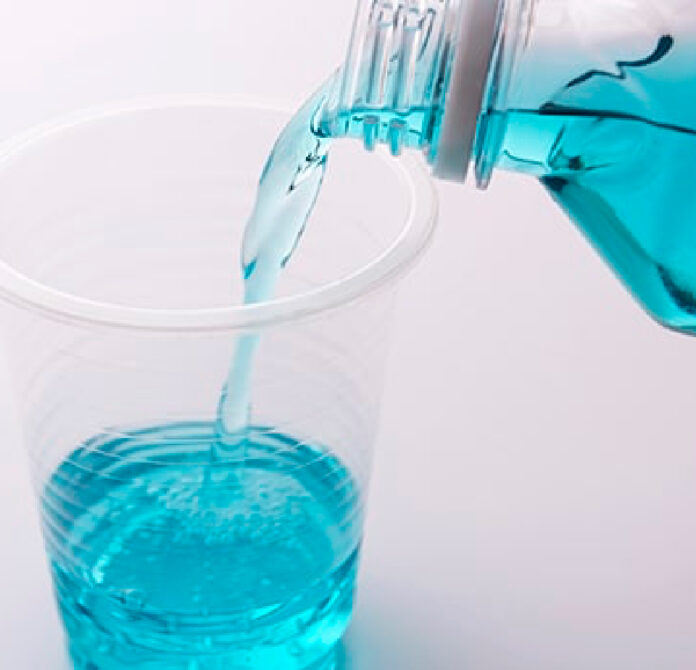The short answer to your question is ” What happens when I swallow mouthwash?” It all depends. Your personal sensitivities, how much you swallow and the contents of the product can all impact the outcome.
Each mouthwash is unique. Some have high alcohol concentrations. It is used to kill bacteria and preserve the product. Some people use mouthwashes to get drunk due to the high alcohol content.
Other mouthwashes can contain preservatives, antibiotics, or other chemicals to help treat or prevent oral problems, such as gum disease or tooth decay. This affects the expiration date. If taken in excess, these products can prove to be dangerous.
Some ingredients in natural mouthwashes can cause harm if they are swallowed in large amounts
This article examines:
- What happens if you accidentally ingest a small amount?
- What to do if you have swallowed a lot of mouthwash
- Side effects of mouthwash
- Get drunk by drinking mouthwash
- Summary
Can we use mouthwash?
As the name implies, mouthwash is meant to be inhaled. The mouthwash can be accidentally swallowed.
The International Organization for Standardization (ISO), has established guidelines for the safe use of chemicals.
However, the mouthwash is intended to be sprayed out and not swallowed. It is therefore not safe for consumption.
There are some ingredients that can be more harmful than others. We’ll look at them later. For now, here are some tips to help you if your mouthwash has been swallowed.
What to do if your mouth is irritated by a little bit of mouthwash
You are unlikely to get hurt if you accidentally swallow any mouthwash.
You may feel mildly unwell or have diarrhea. Most of the time, this will disappear in a matter of hours.
The following steps can be taken to prevent you from accidentally swallowing a mouthwash.
- Buy Mouwashes with Child-Resistant Caps
- Make sure children don’t spit out mouthwash.
- Children below 6 years of age should not use mouthwash, as they may have difficulty controlling the swallowing reflex.
- Use mouthwash with care. You should set aside time for your oral hygiene routine, so you can pay attention.
What happens if you ingest a lot of mouthwash
There could be a problem if you swallow large amounts of mouthwash. Because mouthwashes may contain harmful ingredients, high doses can cause serious health problems. These ingredients are described in the following section.
If you have consumed a lot mouthwash, here are some tips.
- Do not attempt to make the person who took too much mouthwash vomit.
- Refer to the next section for a list of side effects and harmful ingredients on the mouthwash label.
- Contact your doctor immediately. Please provide details about the substance and the age and weight. They will be able to give you the best advice.
- If you have severe symptoms, contact emergency services immediately. These include dizziness, drowsiness, difficulty breathing or, in severe cases, seizures. You should always bring your mouthwash bottle with to the emergency department.
- If in doubt, always consult with a healthcare practitioner
There are hundreds upon hundreds of mouthwashes, with many different ingredients. These mouthwashes can be potentially dangerous are listed below. These ingredients can be used as directed. High doses are where the most dangerous side effects are likely.
The most dangerous ingredient is probably alcohol, which is usually ethyl Alcohol.
Ethyl alcohol
It is an form of alcohol that has been deliberately altered in order to prevent people from drinking it. This is called denaturing. This involves adding chemicals. It does not reduce the alcohol’s intoxicating properties. Some people abuse mouthwashes to get drunk because of the high levels of alcohol in them.
Drinking high-concentrated alcohol can cause side effects. You also react to any chemicals used during denaturation. It can cause organ failure, nerve system damage, blindness, or even death if it is Methanol.
Methyl salicylate
This ingredient is used to flavor and as an antibiotic.
Side effects include rapid salicylate poisoning. You may experience shortness of breath and exhaustion. People who are taking blood thinners, such as Wayfairin, can be particularly at risk.
Hydrogen peroxide
Hydrogen peroxide is an antiseptic that can be used in mouthwashes.
Overdoses of hydrogen peroxide may cause diarrhea, nausea, vomiting, or damage to the digestive system.
Chlorhexidine gluconate
This ingredient is antibacterial. It is frequently used to combat gingivitis.
Consuming this ingredient can cause blood pressure to rise, damage the heart, and circulation problems. This ingredient not only kills bacteria that causes gingivitis but it also harms beneficial bacteria that controls blood pressure.
Fluoride
Fluoride can fight tooth decay and is commonly found in mouthwashes.
It is generally accepted that fluoride has many benefits, which outweighs the potential risks. Fluoride can cause joint and bone damage when taken in very high amounts. It can also cause neurological and thyroid problems. Children younger than 6 years old are especially sensitive.
Fluoride can be considered a neurotoxin. However you cannot overdose if your mouthwash contains large amounts of fluoride. In the next section, we will discuss this.
Get drunk by drinking mouthwash
The concentrations in your mouthwash containing alcohol are significantly higher than those in standard alcoholic drinks .
Beer, for example, typically contains 5% alcohol while wine has 12%. A mouthwash may contain as much as 26.9% alcohol. This concentration is much higher than in some spirits. This means that you can only drink a few centiliters worth of mouthwash to get drunker than 2 or 3.
This has lead to some people using mouthwash as a way to get drunk.
As we said, the alcohol found in mouthwashes was deliberately made unfit to be consumed. If taken in excess, the side effects can be fatal.
Never drink mouthwash
- If you are allergic to any one of the ingredients, it is unlikely that you will accidentally swallow a small amount.
- The ingredients of mouthwash may cause you to have a bad reaction.
- Do not drink too much mouthwash.
- If children are younger than 6 years, they must be supervised before using a mouthwash.
- You should call your GP if the mouthwash is too strong. You should also indicate the patient’s age and weight as well as the ingredients of the mouthwash.























